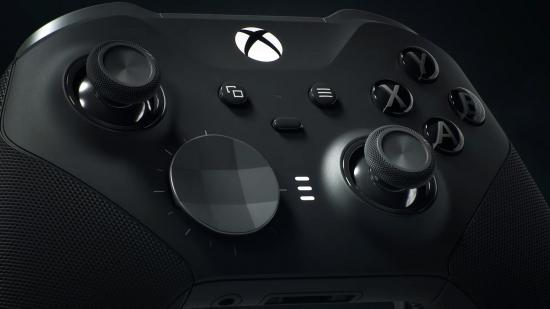Chimicles, Schwartz Kriner, & Donaldson-Smith, the US law firm that has leveraged class action lawsuits against Sony and Nintendo for alleged controller drift, is continuing its case against Microsoft over the same problem – and it’s buying up broken controllers in the process.
As originally reported by VGC’s Andy Robinson, the lawsuit was filed in Washington last April by Donald McFadden, who had claimed he was experiencing stick drift on his Xbox Elite controller shortly after purchasing. As the issue arose outside of the then 90-day warranty period, McFadden cut his losses, and bought himself a second controller. To his surprise, the replacement began to drift only a few months later.
To aid its investigation into the matter, Chimicles, Schwartz Kriner, & Donaldson-Smith requested, and continues to request, faulty controllers from users in return for an undisclosed fee. Benjamin Johns, a partner at the firm, tells The Loadout that these controllers don’t just sit idly as evidence, but are sent to “our expert to examine and opine on the root cause of the defect”, as seen in the original case file.
The expert examination concluded that, at least in the Xbox One controllers – stick drift is caused by a design flaw in the potentiometer – “the mechanism that translates the physical movement of the thumbstick into movement within the video game” The case alleges that this issue has plagued users “since at least 2014.”
When asked why the firm had taken an interest in the controller drift cases – which span all three of the console giants – Johns says that the firm actively scours blogs and social media to tap into consumer qualms. “We noted trends in complaints for these various controllers,” he says, “and, sure enough, when we began investigating it we were inundated with intakes from people across the United States and beyond.” Once the expert was brought in, the firm knew it had a case on its hands.
“In a general sense,” Johns says, “the theory of these cases is that had the drift defect been disclosed, no reasonable consumer would have bought them in the first place.” Shortly after the case was updated in September last year – once again spotted first by VGC – Microsoft extended its warranty for the Elite Series 2 controller from 90 days to one year. However, the company has yet to acknowledge any potential flaws in its design.
The cases against both Microsoft has now entered arbitration, which Johns explains usually means the “end of the road”, as the defendant will most likely never see the case enter a public court. However, the firm remains hopeful that it can “recover damages” for those affected thanks to the “sufficient volume” of controllers it has acquired.
Microsoft has been contacted for a comment.
